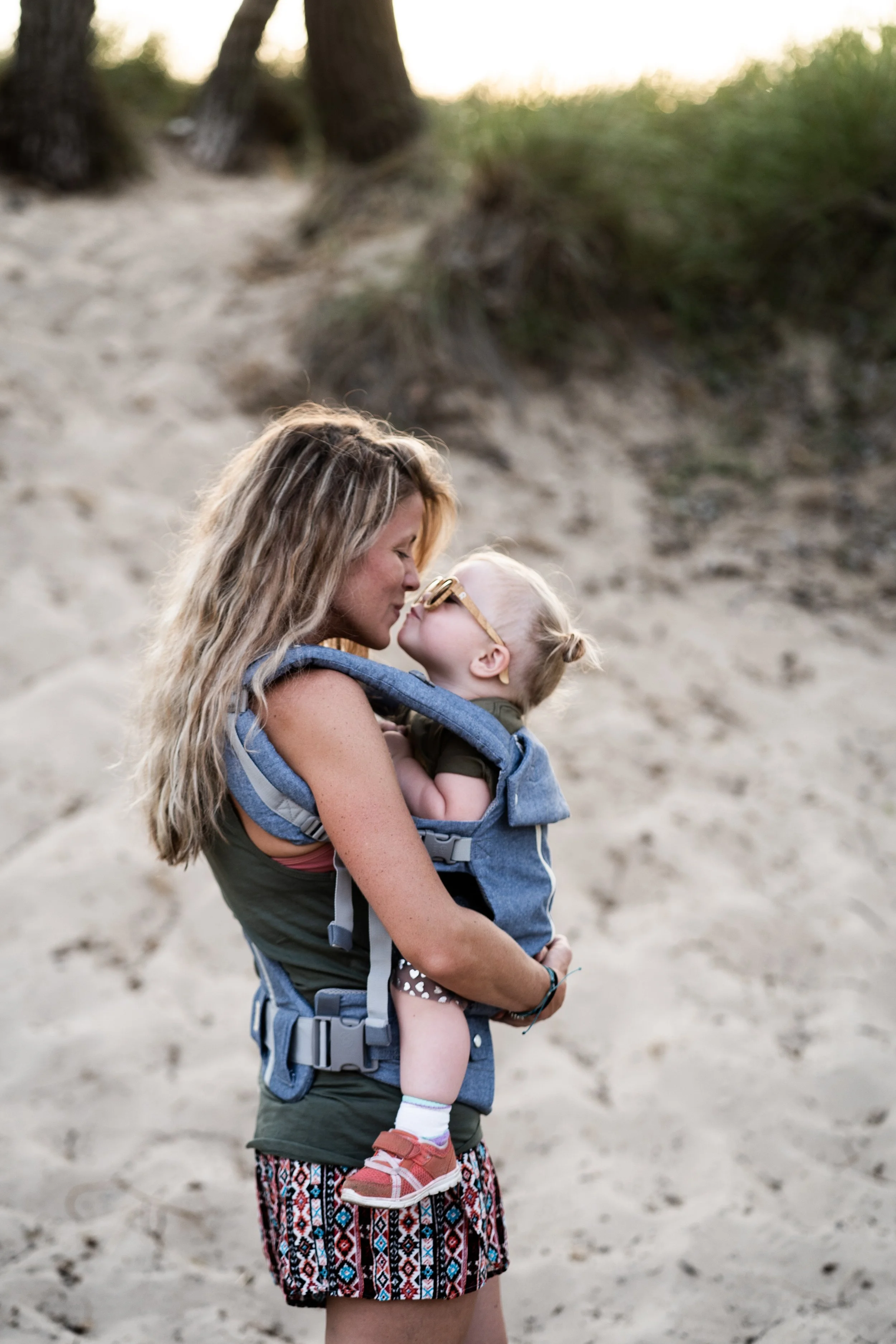Gentle Parenting Master Class
Gentle Parenting Master Class
Welcome to this masterclass on gentle parenting! In this course, we will cover the principles and practices of gentle parenting, and how you can apply them to your parenting journey.
Module 1: Introduction to Gentle Parenting
What is gentle parenting?
The benefits of gentle parenting
The difference between gentle parenting and other parenting styles
Module 2: The Principles of Gentle Parenting
Respect for children's emotions and needs
Communication and connection
Empathy and understanding
Setting limits with kindness and consistency
Role modeling and self-regulation
Module 3: Gentle Parenting Practices
Responding to big emotions in a calm and supportive way
Using positive reinforcement and natural consequences
Encouraging independence and self-reliance
Providing a safe and nurturing environment
Managing stress and self-care for parents
Module 4: Applying Gentle Parenting in Real Life
Strategies for managing common parenting challenges
Tips for implementing gentle parenting practices in your daily life
The role of mindfulness in gentle parenting
Module 5: Conclusion
The importance of self-reflection and ongoing learning in gentle parenting
The benefits of a gentle parenting approach for both children and parents
Final thoughts and resources for further learning
Thank you for joining us in this masterclass on gentle parenting! We hope you have gained valuable insights and knowledge that will help you on your parenting journey. Remember to be patient with yourself and your children, and to stay open to learning and growing as a parent. The end.
Module 1: Introduction to Gentle Parenting
Welcome to this module on the introduction to gentle parenting. In this module, we will cover the following topics:
What is gentle parenting?
Gentle parenting is a parenting approach that emphasizes empathy, respect, and connection in the parent-child relationship. It is based on the belief that children are naturally curious, capable, and deserving of respect and that they are best supported when they are allowed to explore, learn, and grow at their own pace.
The benefits of gentle parenting
Gentle parenting can have numerous benefits for both children and parents. Some of the potential benefits of gentle parenting include:
Enhanced emotional intelligence and self-regulation for children
Stronger communication and connection between parent and child
Increased independence and self-reliance for children
Lower levels of stress and burnout for parents
A more peaceful and harmonious family dynamic
The difference between gentle parenting and other parenting styles
Gentle parenting is often contrasted with other parenting styles, such as authoritarian, permissive, or uninvolved parenting. Here are some key differences between gentle parenting and other styles:
Authoritarian parenting: This style is characterized by strict rules and a focus on obedience. Gentle parenting, on the other hand, emphasizes empathy and understanding and allows for more flexibility and autonomy for children.
Permissive parenting: This style is characterized by a lack of structure and limits. Gentle parenting provides structure and limits while also being responsive and nurturing.
Uninvolved parenting: This style is characterized by a lack of involvement and support for children. Gentle parenting, on the other hand, emphasizes connection and support for children.
By understanding the principles and practices of gentle parenting, you can cultivate a more positive, supportive, and nurturing relationship with your children. The end.
Module 2: The Principles of Gentle Parenting
Welcome to this module on the principles of gentle parenting. In this module, we will cover the following topics:
Respect for children's emotions and needs
Gentle parenting involves treating children with respect and recognizing their unique needs and emotions. This means listening to their feelings, acknowledging their perspective, and providing support and comfort as needed.
Communication and connection
Gentle parenting involves fostering strong communication and connection with children through regular conversations, active listening, and eye contact. This helps children feel heard and understood, and promotes a sense of closeness and connection.
Empathy and understanding
Gentle parenting involves cultivating empathy and understanding for children's experiences and feelings. This involves putting ourselves in their shoes, trying to see things from their perspective, and offering support and validation as needed.
Setting limits with kindness and consistency
Gentle parenting involves setting clear and consistent limits while also being kind and understanding. This helps children feel safe and secure and promotes self-regulation.
Role modeling and self-regulation
Gentle parenting involves being a positive role model for children and modeling self-regulation and emotional intelligence. This helps children learn and practice these skills themselves.
By following these principles, you can create a supportive and nurturing environment that promotes the well-being and development of your children. The end.
Module 3: Gentle Parenting Practices
Welcome to this module on gentle parenting practices. In this module, we will cover the following topics:
Responding to big emotions in a calm and supportive way
Gentle parenting involves responding to children's big emotions in a calm and supportive way. This means acknowledging their feelings, offering comfort and reassurance, and helping them find healthy ways to cope with and express their emotions.
Using positive reinforcement and natural consequences
Gentle parenting involves using positive reinforcement and natural consequences to guide children's behavior. This means praising and reinforcing positive behavior, and allowing natural consequences (e.g. the consequence of not wearing a coat in cold weather) to teach lessons, rather than using punishment or shame.
Encouraging independence and self-reliance
Gentle parenting involves encouraging children's independence and self-reliance by giving them age-appropriate tasks and responsibilities and allowing them to make their own decisions. This helps children develop self-confidence and problem-solving skills.
Providing a safe and nurturing environment
Gentle parenting involves creating a safe and nurturing environment for children. This means providing a physically and emotionally safe space, being attuned to children's needs, and being present and available for them.
Managing stress and self-care for parents
Gentle parenting involves managing stress and practicing self-care as a parent. This helps parents stay resilient and focused, and model healthy coping skills for their children.
By incorporating these gentle parenting practices into your parenting style, you can create a more positive and nurturing environment for your children and promote their well-being and development. The end.
Module 4: Applying Gentle Parenting in Real Life
Welcome to this module on applying gentle parenting in real life. In this module, we will cover the following topics:
Strategies for managing common parenting challenges
Gentle parenting involves finding effective strategies for managing common parenting challenges, such as setting limits, managing behavior, and promoting independence. These strategies may include using positive reinforcement, setting clear and consistent limits, and finding age-appropriate ways to encourage independence.
Tips for implementing gentle parenting practices in your daily life
Gentle parenting involves incorporating gentle parenting practices into your daily life in a consistent and intentional way. Some tips for implementing gentle parenting practices include:
Making time for regular connection and communication with your children
Taking breaks and finding ways to manage stress and self-care as a parent
Seeking support and guidance from others, such as a trusted friend, family member, or therapist
Being open to learning and growing as a parent
The role of mindfulness in gentle parenting
Gentle parenting involves being mindful and present in the moment with your children. This means paying attention to your own emotions and reactions, as well as those of your children, and finding ways to stay calm and centered in the midst of parenting challenges. Some ways to cultivate mindfulness as a gentle parent include:
Practicing mindfulness meditation or other relaxation techniques
Taking breaks and finding time for self-care
Engaging in activities that promote presence and connection, such as walking in nature or spending quality time with your children
By applying gentle parenting principles and practices in your daily life, you can create a more positive and nurturing environment for your children and foster their well-being and development. The end.
Module 5: Conclusion
Welcome to the final module of this masterclass on gentle parenting. In this module, we will cover the following topics:
The importance of self-reflection and ongoing learning in gentle parenting
Gentle parenting involves continuous self-reflection and learning. This means taking the time to reflect on your parenting practices, seeking feedback and guidance from others, and being open to learning and adapting as a parent.
The benefits of a gentle parenting approach for both children and parents
Gentle parenting can have numerous benefits for both children and parents. Some of the potential benefits of gentle parenting include:
Enhanced emotional intelligence and self-regulation for children
Stronger communication and connection between parent and child
Increased independence and self-reliance for children
Lower levels of stress and burnout for parents
A more peaceful and harmonious family dynamic
Final thoughts and resources for further learning
Gentle parenting is a journey, and it takes time and effort to cultivate and apply gentle parenting practices in your daily life. Remember to be patient with yourself and your children, and to stay open to learning and growing as a parent. There are many resources available to support you on your gentle parenting journey, including books, online courses, and support groups.
Thank you for joining us in this masterclass on gentle parenting! We hope you have gained valuable insights and knowledge that will help you on your parenting journey. Remember to be patient with yourself and your children, and to stay open to learning and growing as a parent.
Thanks for reading!
Have any questions? Like what you read? Let us know in the comments below!
👉 New blogs are posted every day at 9:30 am EST!
👉 Check out our Think and Grow Rich Audio Program on Youtube! Listen to this audio EVERY DAY for 30 days to TRANSFORM your life - GUARANTEED!







